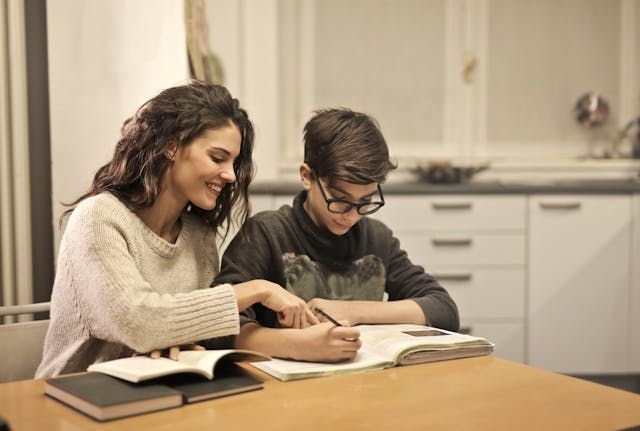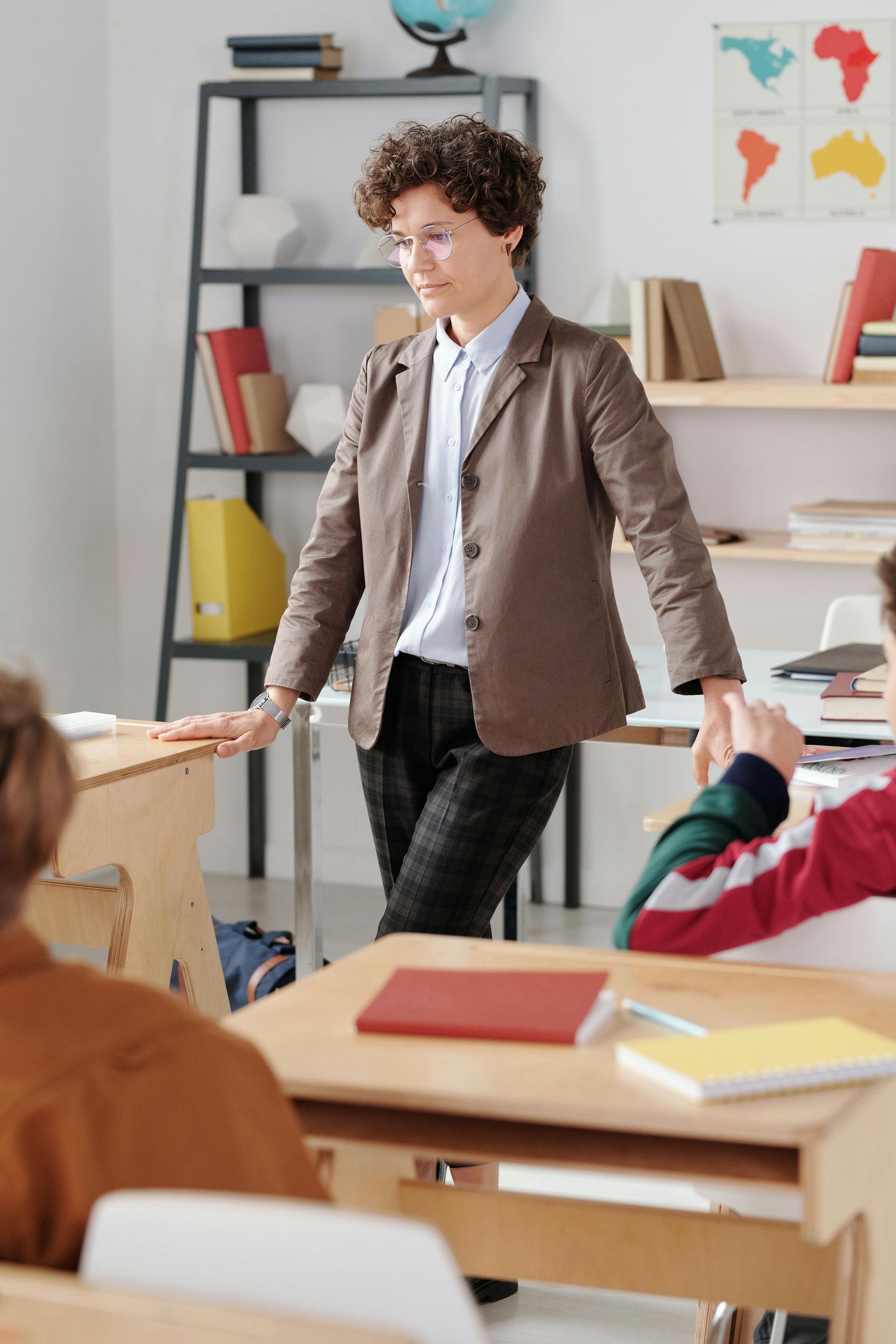How Self-Confidence Helps Students Succeed in School
Think about this: You're sitting in class. Some kids seem to know all the answers. You feel stuck. That quiet voice inside you—called confidence—feels far away. But here’s the truth: Self-confidence and academic success go hand in hand.
Confidence isn’t just a “nice” feeling. It helps kids face tough problems and say, “I can try this.” It turns fear into curiosity and mistakes into learning.
In this article, you’ll see why self-confidence isn’t just fluff. It’s one of the strongest tools students can have—not just in school, but in life.
The Relationship Between Self-Confidence and Academic Success
Want to know one thing most top students have in common? They believe in themselves. Self-confidence and academic success are closely linked. When kids feel confident, they don’t freeze when something’s hard—they try.
Why Confidence Matters
Confidence gives students energy. Without it, even smart kids may stay quiet or give up. But confident students think, “I can figure this out.” That attitude makes them try new things, ask questions, and keep going when work gets tough.
The Confidence-Success Cycle
Doing well in school can build confidence. And confidence helps students do even better. It’s a circle: a small win makes a kid feel proud. That pride makes them want to try again. More effort brings more success—and the cycle keeps going.
Real vs. Fake Confidence
Some kids act super confident but don’t listen or grow. That’s not true confidence. Real confidence means knowing what you're good at and where you need help. Confident students keep learning, stay curious, and aren’t afraid to make mistakes.
Want more ideas for helping kids build real confidence? Check out this guide for teachers and parents.
How Mindset Shapes Self-Confidence in Students
The way kids think about learning can build or break their confidence. This thinking pattern is called a mindset. A strong mindset helps students believe they can grow and improve. That belief feeds confidence and fuels success.
The Power of “Yet”
If a student says, “I’m bad at math,” that’s a fixed mindset. But if they say, “I’m not good at math yet,” that’s a growth mindset. That little word—“yet”—makes a big difference. It turns mistakes into chances to grow and helps confident students stay strong when work gets tough.
Praise the Effort, Not Just the Result
Saying “You worked hard!” is better than “You’re so smart!” It teaches kids that trying matters just as much as getting the right answer. When kids are praised for effort, they take more risks, try new things, and feel proud of progress—even if it's slow.
What Kids Tell Themselves Matters
Inside every kid’s mind is a voice that cheers them on—or puts them down. That voice is called self-talk. When students think things like “I can do this,” their confidence grows. But when they say “I’m dumb,” it shrinks. Helping kids change their self-talk gives them a secret weapon for success.
The Role of Environment in Fostering Confident Students
Where kids learn matters. A kind, caring place helps confidence grow. A cold, strict place can crush it. The classroom, home, and even the playground can shape how kids feel about themselves.
Kind Teachers Make a Big Difference
Think about a time when a teacher smiled at you or helped you through a hard problem. That support builds trust—and trust builds confidence. When teachers give helpful feedback and cheer on small wins, kids feel safe trying again.
Friends Matter Too
Kids learn from each other. Working in groups, playing fair games, or sharing ideas in class shows students that everyone has something special to offer. But if kids feel judged or left out, their confidence can fall fast. That’s why schools should focus on teamwork, kindness, and respect.
Home and Community Support
Confidence doesn’t stop at the school door. A loving home, dinner chats about the day, or a library visit can help students feel proud of their efforts. When communities value learning, kids believe learning matters—and that they matter too.
Self-Efficacy: Believing in Your Capacity to Learn
Self-efficacy means believing you can do something—even if it’s hard. It’s a big part of self-confidence and academic success. When kids believe they can handle a task, they’re more likely to try, focus, and stick with it.
Small Wins Build Big Belief
Think about learning to ride a bike. Each time you pedal a little farther, your belief grows. It’s the same with school. When kids finish a tough assignment or learn something new, they think, “I can do this.” These small wins stack up and build strong self-efficacy.
Watching Others Helps Too
When students see classmates work hard and succeed, it shows them what’s possible. If someone like them can do it, maybe they can too. That’s why group work, peer helpers, and learning together make a difference.
Handling Big Feelings
Fear, worry, and stress can make school feel harder. But kids who know how to calm down—like using deep breaths or taking short breaks—can think clearly and keep trying. Teaching simple ways to manage emotions helps students feel strong and capable.
Strategies to Cultivate Confidence in Academic Settings
So how do we help kids become more confident? It starts with small steps. A few daily habits can turn nervous students into confident students who are ready to learn and grow.
Set Goals and Celebrate Progress
Big goals can feel scary. But when kids break them into small steps—and celebrate along the way—it keeps them motivated. Every finished worksheet, solved problem, or brave answer builds that “I can do this” feeling.
Make It Safe to Take Risks
Kids won’t try new things if they’re afraid to be wrong. But when teachers and parents say, “It’s okay to make mistakes,” it gives students freedom to explore. That freedom turns into curiosity—and confidence.
Teach Reflection
Asking “What went well?” or “What could I do better next time?” helps students learn from their own work. Reflection teaches kids to trust their thinking and grow stronger from their mistakes.
Use Mentors and Support Teams
When kids get help from classmates, teachers, or older students, they feel supported. Study buddies and kind mentors can cheer kids on when they’re stuck. Encouragement from others helps students believe in themselves.
Teach Stress-Relief Tools
School can be stressful. Teaching kids how to take deep breaths, stretch, or pause for a quick break keeps their minds calm. A calm brain makes space for confidence to shine.
For more simple strategies, visit this confidence-building guide for teachers and parents.
Conclusion: Confidence Fuels Learning
Confidence isn’t just a feeling—it’s a tool that helps kids grow, learn, and push through hard things. When students believe in themselves, they try more, care more, and stick with it when school gets tough. That’s why self-confidence and academic success are so closely connected.
Whether it’s a caring teacher, a safe classroom, or small wins each day, every piece matters. And when we support kids the right way, we don’t just create confident students—we create stronger learners and brighter futures.
Want to get your students fired up and feeling confident? Check out my confidence-building assembly, “Smile! It’s Magic!” Filled with magic, join-in fun, humor and more, this program will be the assembly highlight of your school year.
SHARE POST



